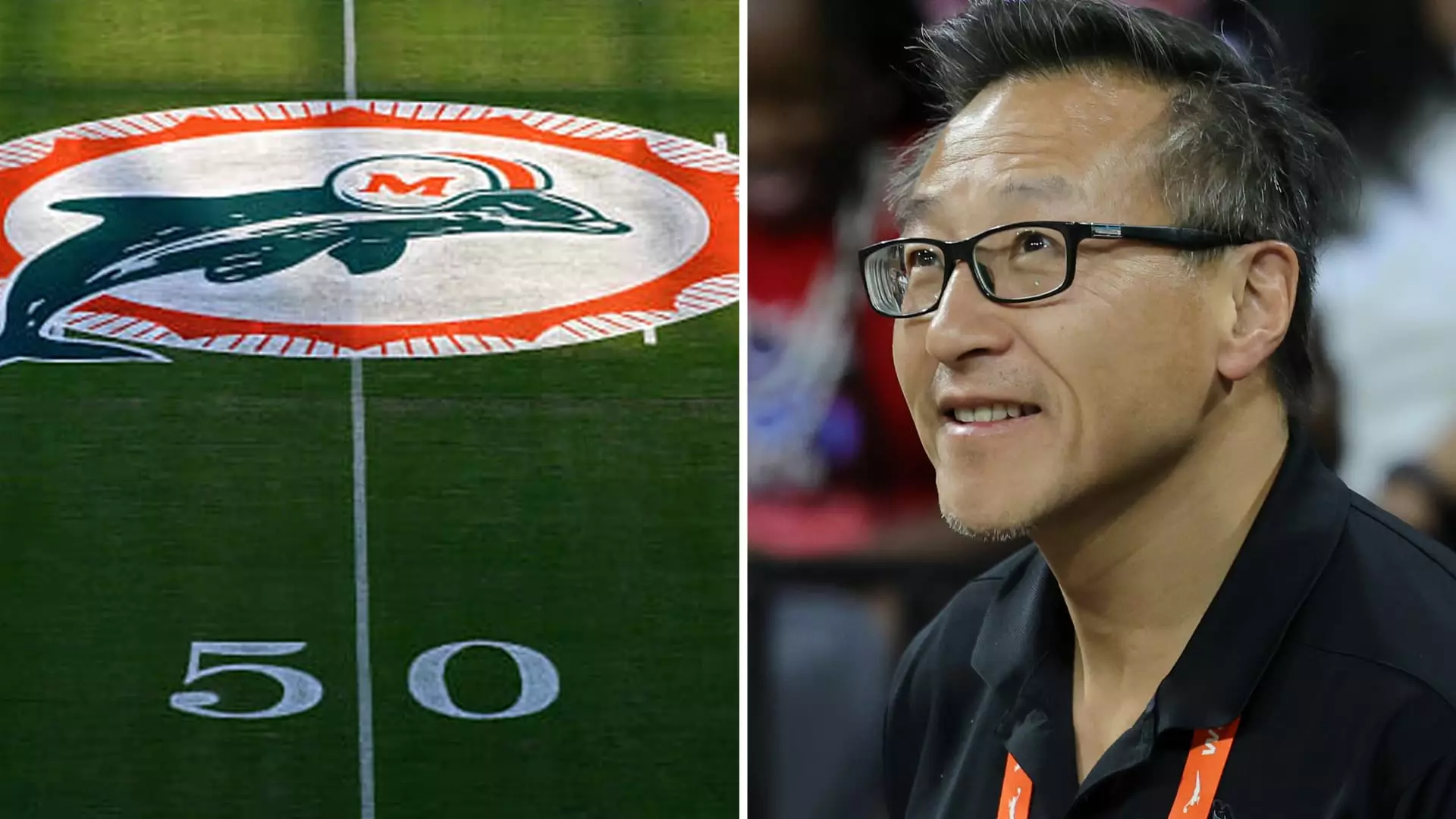In recent years, the landscape of sports franchise ownership has shifted significantly, with private equity firms increasingly eyeing opportunities in professional sports. The Miami Dolphins, an iconic NFL team, are reportedly in advanced discussions to sell a minority stake to Ares Management, a prominent private equity firm, and billionaire Joe Tsai. This development is noteworthy as it marks a crucial step not only for the Dolphins but also for the NFL as a whole, which has traditionally been resistant to external capital investment. The valuation associated with this asset deal—around $8.1 billion—underscores the increasing worth of sports franchises in the current market environment.
The potential deal isn’t just a transaction for the Dolphins; it encompasses a wider range of assets that highlight the multifaceted nature of sports ownership today. Ares Management’s investment would not only include the Dolphins but also Hard Rock Stadium, the operational rights for high-profile events like the Miami Grand Prix and the Miami Open tennis tournament. The total package, while valued at $8.1 billion, is reported to be less than the $10 billion that a controlling valuation would suggest. This discrepancy raises questions about how franchises are valued for investment versus outright purchase.
Furthermore, this move coincides with the NFL’s recent shift in policy regarding private equity investments, which could reshape how teams are funded moving forward. Such arrangements are designed to increase revenues and enhance the experiences associated with owning a franchise. With private equity backing, franchises can access significant capital that can be funneled into infrastructural advancements and community engagement, something that can increase their long-term viability.
Stephen Ross, who acquired the Miami Dolphins for $1.1 billion in 2009, is strategically utilizing this impending sale to bolster his real estate ventures in South Florida. This strategic direction reflects a growing trend among franchise owners who are diversifying not just within the league but across various sectors, including real estate and entertainment. Ross’s dual ownership of the team and its stadium allows him to profit from multiple revenue streams—hosting events in the venue adds considerable financial flexibility.
Interestingly, Ross turned down a staggering $10 billion offer for the team not long ago, emphasizing his desire to keep the franchise within his family. This highlights the emotional connection that many owners have with their teams, transcending mere business transactions.
The NFL’s approval of private equity investment reflects a broader acknowledgment of the shifting dynamics in sports business. As the last major professional sports league to permit such investments, the NFL is adapting to a reality where franchise valuations are soaring, and finding traditional buyers can be increasingly challenging. Private equity can provide the necessary liquidity and expertise that can help NFL teams not just survive but thrive financially.
Ares Management, managing an impressive $450 billion in assets, stands ready to be one of the first firms to actively engage with an NFL team. The growing trend of ownership diversity—where individuals like Joe Tsai, who already owns multiple franchises, expand their portfolios—is reshaping how sports franchises operate. His extensive portfolio shows a clear inclination toward building a sports empire, which could further innovate how franchises engage with fans and generate revenue.
As the Miami Dolphins navigate this pivotal moment, the implications of their potential minority stake sale extend far beyond South Florida. This transformation indicates a new standard for how sports franchises will be owned and operated in the future. With the potential to unlock new revenue streams, enhance community engagement, and increase franchise value, the burgeoning partnership between private equity and professional sports could shape the sporting landscape for years to come. As more teams embrace this model, the lines between sports, entertainment, and investment continue to blur, suggesting a dynamic future ahead.


Leave a Reply